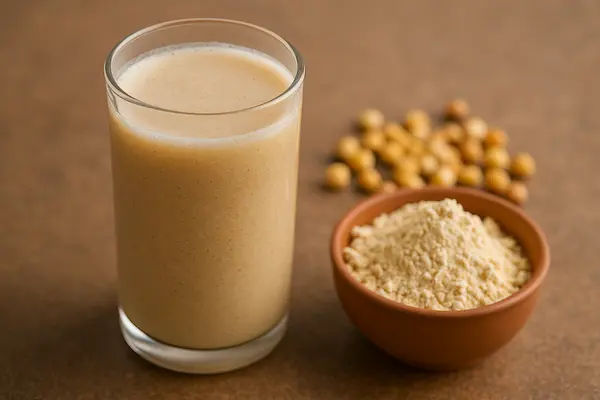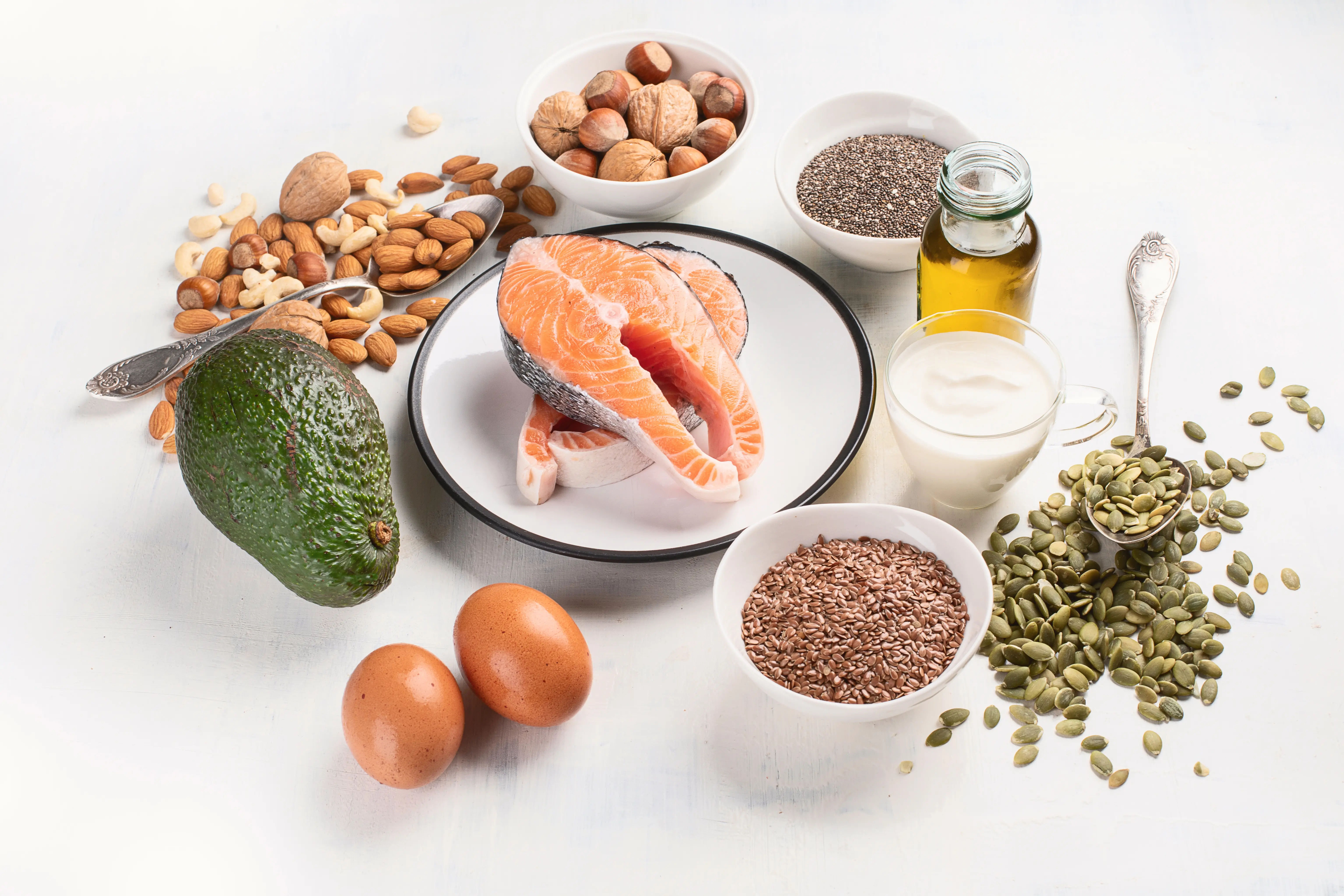Why Gut Health is Important: Your Ultimate Guide to a Happier Gut
Discover why gut health is vital for your immune system, mood, digestion, and overall well-being. Learn signs of poor gut health and practical tips to improve it.

Written by Dr. J T Hema Pratima
Reviewed by Dr. Dhankecha Mayank Dineshbhai MBBS
Last updated on 13th Jan, 2026

Introduction
For years, we thought of our gut as a simple digestive tube, but groundbreaking research has revealed it as a complex command centre vital to our overall well-being. The importance of gut health extends far beyond avoiding bloating or indigestion; it's intrinsically linked to our immune system, mental health, weight, and even our risk for chronic disease. Think of your gut as a lush, diverse garden. When tended properly with the right nutrients, it flourishes, supporting the entire ecosystem of your body. But when neglected, weeds can take over, leading to a cascade of health issues. This article will demystify your gut microbiome, explore the profound reasons why its health is non-negotiable, and provide a practical, actionable plan to nurture it. Understanding this connection is the first step toward taking control of your health from the inside out.
What Exactly is Gut Health? More Than Just a Stomach Ache
When we talk about gut health, we're primarily referring to the balance and function of the trillions of microorganisms—bacteria, viruses, and fungi—living in your intestines, collectively known as the gut microbiome. A healthy gut contains a diverse and balanced community of mostly friendly microbes that coexist peacefully, working in symbiosis with your body.
The Gut Microbiome: Your Inner Ecosystem
This collection of microbes isn't just along for the ride; it's an active organ involved in crucial bodily functions. These microorganisms help break down complex carbohydrates, produce essential vitamins like B and K, and train our immune system. The balance between beneficial and potentially harmful species is key. Higher diversity is generally a marker of better gut health, as a resilient ecosystem is better able to resist disruptions.
The Gut-Brain Connection: Your Second Brain
Your gut and brain are in constant communication via the gut-brain axis, a bidirectional link involving nerves, hormones, and immune system molecules. Your gut produces about 95% of your body's serotonin, a neurotransmitter crucial for mood regulation. This is why you might feel "butterflies" when nervous or experience an upset stomach when stressed. This powerful connection underscores why an unhealthy gut can directly impact your mental state.
The Far-Reaching Importance of a Healthy Gut
The importance of gut health cannot be overstated. A well-functioning gut microbiome is a cornerstone of vitality, influencing nearly every aspect of your physiology.
Boosting Your Immune System
Approximately 70-80% of your immune cells reside in your gut. The beneficial bacteria in your microbiome play a critical role in educating these immune cells, helping them distinguish between foreign invaders and the body's own tissues. A healthy, diverse microbiome helps regulate immune responses, reducing unnecessary inflammation and strengthening your defences against pathogens. This is a key reason why supporting your gut health and immune system is a fundamental health strategy.
Supporting Mental Well-being and Mood
Through the gut-brain axis, the state of your microbiome can significantly influence your brain. Studies have linked an imbalance in gut bacteria (dysbiosis) to conditions like anxiety, depression, and stress. By producing neurotransmitters and communicating with the brain via the vagus nerve, a healthy gut contributes to a more stable and positive mood, highlighting the importance of gut health for mental clarity and emotional resilience.
Promoting Efficient Digestion and Nutrient Absorption
This is the gut's most well-known job. A balanced microbiome efficiently breaks down food, helps absorb nutrients, and keeps the digestive tract lining healthy. It ensures regular bowel movements and minimises issues like gas, bloating, and constipation. When your gut bacteria are happy, your entire digestive process runs smoothly.
Aiding in Weight Management
Research suggests that the composition of your gut microbiome may influence your weight. Certain bacterial strains are more efficient at extracting energy from food, while others may affect fat storage and hunger hormones. People with a diverse microbiome may find it easier to maintain a healthy weight, making a healthy gut a potential ally in weight management efforts.
Contributing to Heart Health
Some gut bacteria play a role in metabolising dietary compounds like choline and L-carnitine (found in red meat) into a substance called TMAO, which at high levels is linked to an increased risk of heart disease. A healthy gut, supported by a fibre-rich diet, can help manage cholesterol levels and support overall heart health.
Red Flags: 7 Signs of an Unhealthy Gut
How do you know if your gut needs attention? Your body sends signals. Be mindful of these common signs of an unhealthy gut:
Upset Stomach: Frequent gas, bloating, heartburn, diarrhoea, or constipation.
Food Intolerances: Difficulty digesting certain foods, often due to poor quality of bacteria in the gut.
Unintentional Weight Changes: Gaining or losing weight without changes in diet or exercise can signal a malabsorption issue or an imbalanced microbiome.
Sleep Disturbances or Constant Fatigue: An unhealthy gut can contribute to insomnia and poor sleep, often linked to serotonin production.
Skin Irritations: Conditions like eczema may be related to a damaged gut, which can increase inflammation.
Autoimmune Conditions: Chronic inflammation from an unhealthy gut may dysregulate the immune system, potentially triggering autoimmune responses.
High Sugar Cravings: A diet high in processed foods and sugar can decrease the good bacteria in your gut, leading to more intense sugar cravings.
If you experience several of these symptoms persistently, it may be time to take action. If your condition does not improve after trying these methods, book a physical visit to a doctor with Apollo24|7 for further evaluation.
How to Improve Your Gut Health: A Practical Action Plan
The good news is that you can positively influence your microbiome. Here’s your action plan for how to improve gut health naturally.
Feed the Good Bacteria: Probiotics and Prebiotics
This is the dynamic duo of gut nourishment.
Probiotics: These are live, beneficial bacteria found in fermented foods and supplements. They add to the population of good guys in your gut.
Prebiotics: These are types of dietary fibre that act as food for the beneficial bacteria, helping them thrive.
Best Probiotic-Rich Foods to Eat
Incorporate these fermented foods into your diet: Yogurt (with live cultures), Kefir, Sauerkraut, Kimchi, Kombucha, and Miso.
Top Prebiotic Foods for Fuel
Load up on these: Garlic, Onions, Leeks, Asparagus, Bananas, Oats, and Apples.
Embrace a Diverse, Plant-Based Diet
Different beneficial bacteria thrive on different types of fibre. Eating a wide variety of fruits, vegetables, legumes, and whole grains promotes greater microbial diversity. Aim for a "rainbow" of plant-based foods each week.
Limit Gut Irritants: Sugar, Processed Foods, and Artificial Sweeteners
A diet high in sugar and processed foods can promote the growth of harmful bacteria. Some artificial sweeteners have also been shown to negatively impact the gut microbiome. Opt for whole, natural foods whenever possible.
Manage Stress and Prioritise Sleep
Chronic stress can wreak havoc on your gut bacteria. Practices like meditation, deep breathing, yoga, and ensuring 7-8 hours of quality sleep per night are not luxuries—they are essential for maintaining a healthy gut microbiome.
Stay Hydrated and Exercise Regularly
Drinking plenty of water has been shown to have a beneficial effect on the mucosal lining of the intestines. Regular physical activity is also known to enhance the diversity of healthy gut bacteria.
Conclusion
The science is clear: nurturing your gut is one of the most powerful investments you can make in your long-term health. The importance of gut health is foundational, influencing everything from your daily energy levels to your resilience against disease. By viewing your diet and lifestyle choices as tools to cultivate your inner garden, you empower yourself to create a thriving internal environment. Start with small, consistent changes—adding a serving of vegetables, trying a new fermented food, or taking a few minutes to de-stress. Your gut, and indeed your whole body, will thank you for years to come.
FAQs About Gut Health
What is the fastest way to improve gut health?
There's no instant fix, but the quickest positive impact often comes from increasing your intake of dietary fibre (prebiotics) from fruits, vegetables, and whole grains, and incorporating probiotic-rich foods like yogurt or kefir daily. Hydration and reducing sugar intake are also fast-acting strategies.
Are probiotic supplements necessary for a healthy gut?
Not for everyone. If you eat a diverse, whole-foods diet rich in fermented foods, you may not need a supplement. However, supplements can be beneficial after a course of antibiotics or for individuals with specific digestive issues. It's best to consult a healthcare professional before starting any supplement regimen.
Can gut health affect anxiety?
Absolutely. The gut-brain axis is a powerful communication pathway. An imbalance in gut bacteria can contribute to inflammation and affect the production of neurotransmitters like serotonin, which plays a major role in anxiety and depression.
What are the worst foods for gut health?
The most damaging foods are typically those high in added sugars, artificial sweeteners, and highly processed ingredients. These include sugary drinks, processed snacks, fried foods, and excessive red meat, as they can promote the growth of harmful bacteria and inflammation.
How long does it take to restore gut health?
It varies based on the individual and the extent of the imbalance. Some people may notice improvements in digestion within a few weeks of dietary changes. For significant microbiome shifts, it can take several months of consistent healthy habits.
Health topic carousel:
Doctor's speciality: General Practitioner
Text: Consult a Specialist for the best advice




